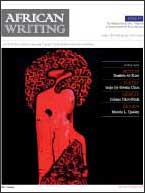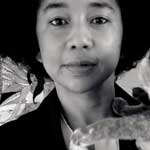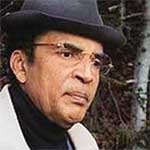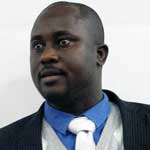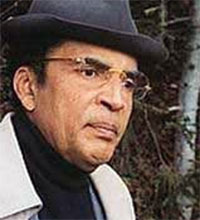al-Koni was born in southern Libya in 1948 and learned Arabic only at the age of 12. A few years later, he left for Moscow where he studied literature at the Gorky Institute. Following this, he worked for many years as a journalist in Russia and Poland, turning to literary writing in the 1980s. Al-Koni has written dozens of works — all in Arabic — novels, collections of short stories and aphorisms, critical studies and cultural histories. A few of his novels have been translated into English, including Gold Dust, The Bleeding of the Stone, and The Puppet. al-Koni’s novels depict the world of the nomadic Berber tribes of the Sahara—the Kel Temasheq (called by others the Tuareg) — a people whose homeland stretches across Niger, Mali, Algeria and Libya. Al-Koni currently lives in Switzerland.
In African Writing:
The Teacher, by Ibrahim al-Koni  11 (Fiction)
11 (Fiction) 
(Translated from the Arabic by Elliott Colla)
To plant the seeds of Truth, the Sufi teacher launched a campaign against the astrologers, soothsayers and followers of the animist rites.
He arrived from Merzuq with a caravan headed toward his home in Touat. He said he belonged to the Qadiri Brotherhood and that his goal was to guide the people to the path of Freedom. When describing himself, he never failed to stress his dissent from the clerics of orthodoxy. As he told the tribe’s chief, Ádda, who had hosted him, ‘I am not playing up my dispute with other clerics in order to insinuate myself with you or to prove my sincerity. I know how much the desert tribes have suffered from them and from the thievery they perform in the name of religion. I reject their school and their methods. First they wrench faith from the language of living revelation. Then they replace divine inspiration with dead letters and dogma. They conjure Satan from his confines in the souls of men and then leave the idiots to give him chase, as if they could actually kill him in this world! And so, Satan comes to rule over men and they lose the most precious gem God ever gives to His creations, the thing he places at the heart of every religion — Freedom. Revelation is turned on its head by such error—it makes Satan men’s Lord and their Guide through life. Here is the source for the brash corruption of men. And the faith returns to being as foreign and strange as it ever was in the past.’
continues...
(The Teacher is from al-Koni's epic novel, The Animists, due for publication with the American University in Cairo Press in 2012.)
Copyright
© African Writing Ltd & respective copyright
owners. Enquiries to permissions(at)african-writing.com.
![]()

